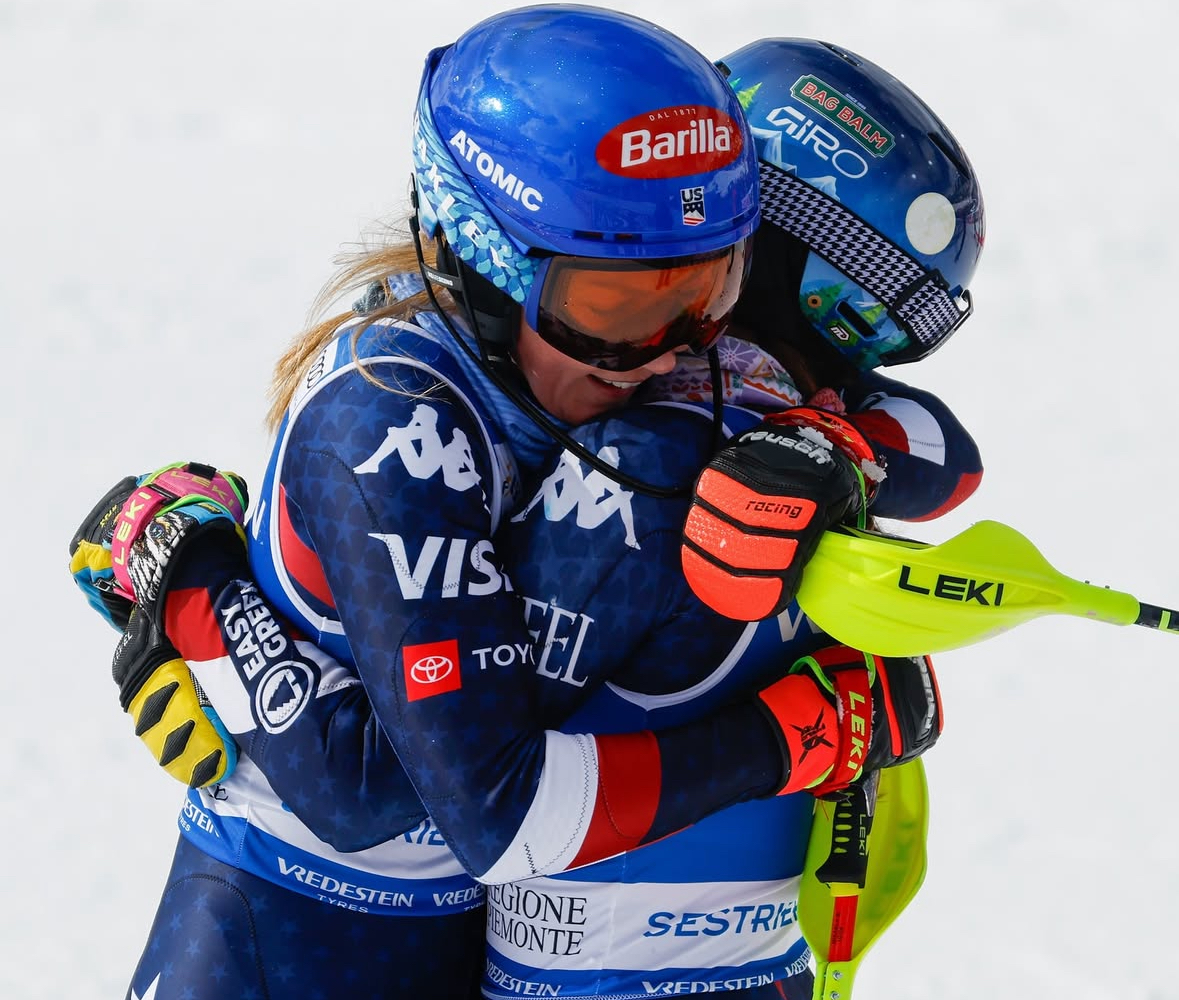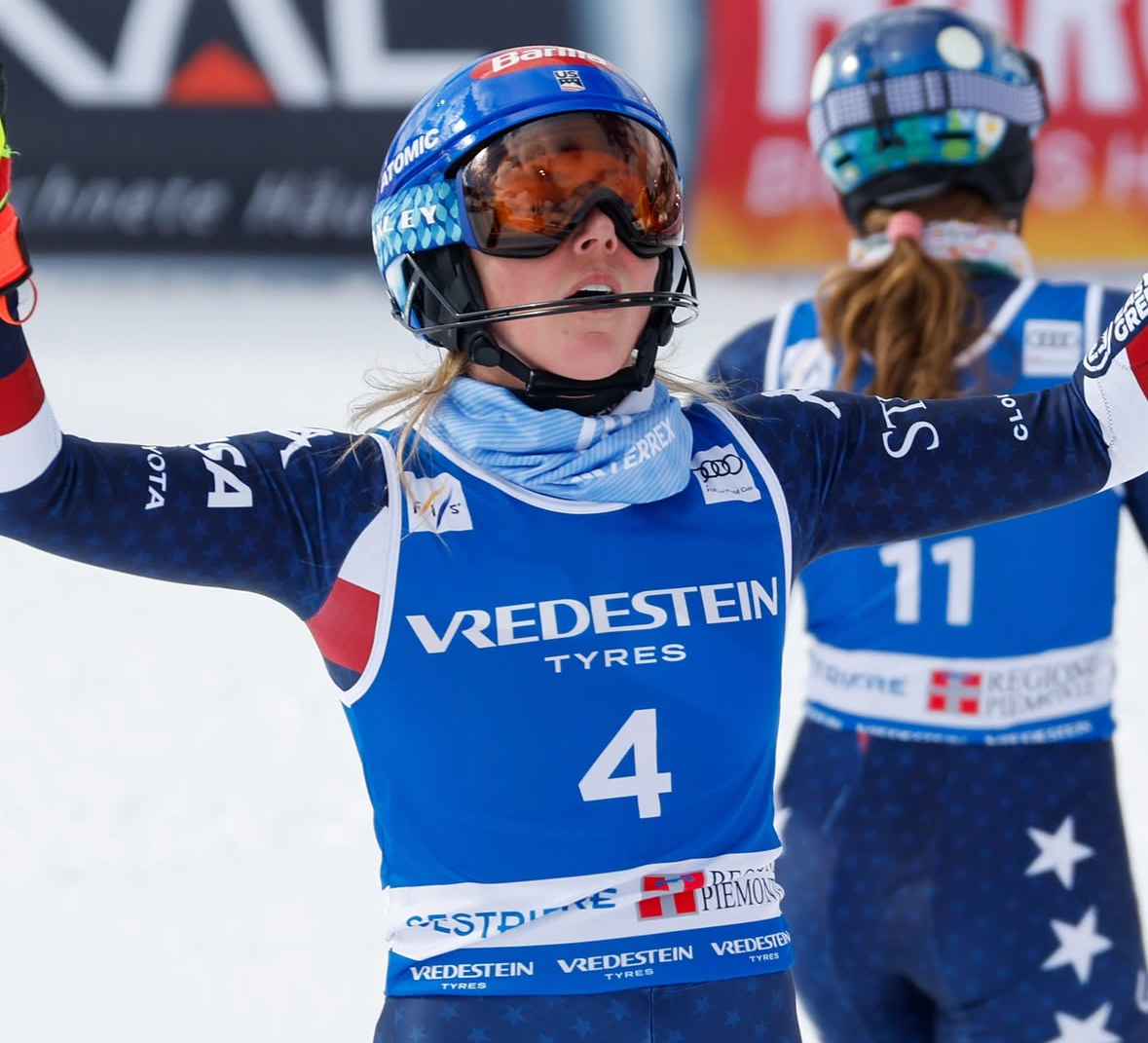
The long-anticipated moment has arrived—Mikaela Shiffrin broke the triple-digit barrier in Alpine skiing, claiming her 100th World Cup victory today, Sunday, February 23, at the Slalom race in Sestriere, Italy. After immense pressure and high expectations going into the season, the 29-year-old suffered a major setback when she sustained an injury during the Giant Slalom race in Killington, Vermont, on November 30. The puncture wound took two months to heal, leaving the World Cup circuit without the sport’s most successful Alpine ski racer. Her comeback has been quiet and without much fanfare, as she focused on regaining not only her strength but, more importantly, her confidence. Shiffrin chose to forgo competing in the Giant Slalom at the World Championships in Saalbach, Austria, earlier this month. While she claimed gold in the Team Combined event alongside Breezy Johnson, she failed to podium in her strongest discipline, Slalom. But today, the Colorado native proved she remains the most dominant skier on the World Cup circuit. Rounding out the podium at Sestriere were Croatia’s Zrinka Ljutic in second and Shiffrin’s teammate Paula Moltzan in third.
- Related: Mikaela Shiffrin Provides Update on her Recovery After Sustaining Puncture Wound at Killington, VT
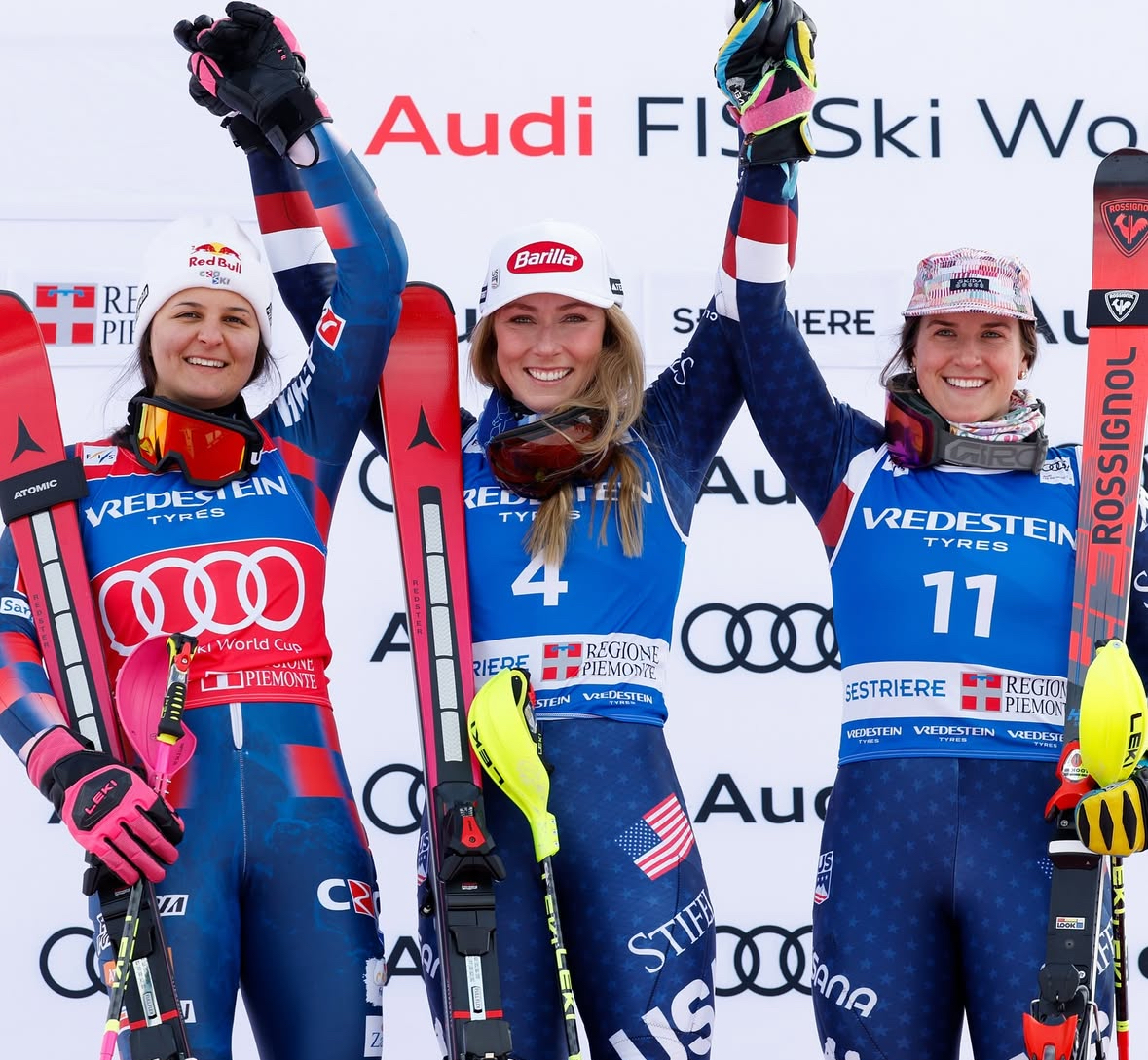
Run 1
Slalom races consist of two runs, with the combined time determining the final standings, and only the top 30 skiers qualifying for Run 2. First out of the gate was Switzerland’s Camille Rast, who had claimed her first World Cup victories this season. Unfortunately, her bid for a podium ended with a DNF after straddling a gate on Run 1. Austria’s Katharina Liensberger, wearing bib 2, instead set the early pace with a time of 54.13, ultimately the third-fastest of the first run. She was only beaten by Ljutic and Shiffrin, who edged ahead with a 0.25-second and 0.34-second lead, respectively. Paula Moltzan of the U.S. delivered a fantastic performance, finishing just 0.04 seconds behind Liensberger in fourth, while Austria’s Katharina Truppe qualified in fifth, 0.13 seconds behind her teammate.
Notable performances in Run 1 included 20-year-old Emma Aicher from Germany, who, starting with bib 20, qualified in 10th place. Italy’s Marta Rosetti, with bib 32, finished 14th, while Germany’s Jessica Hilzinger, wearing bib 41, placed 21st. The U.S.’s AJ Hurt, skiing with bib 31 and just outside the top 30-ranked skiers, finished 24th.
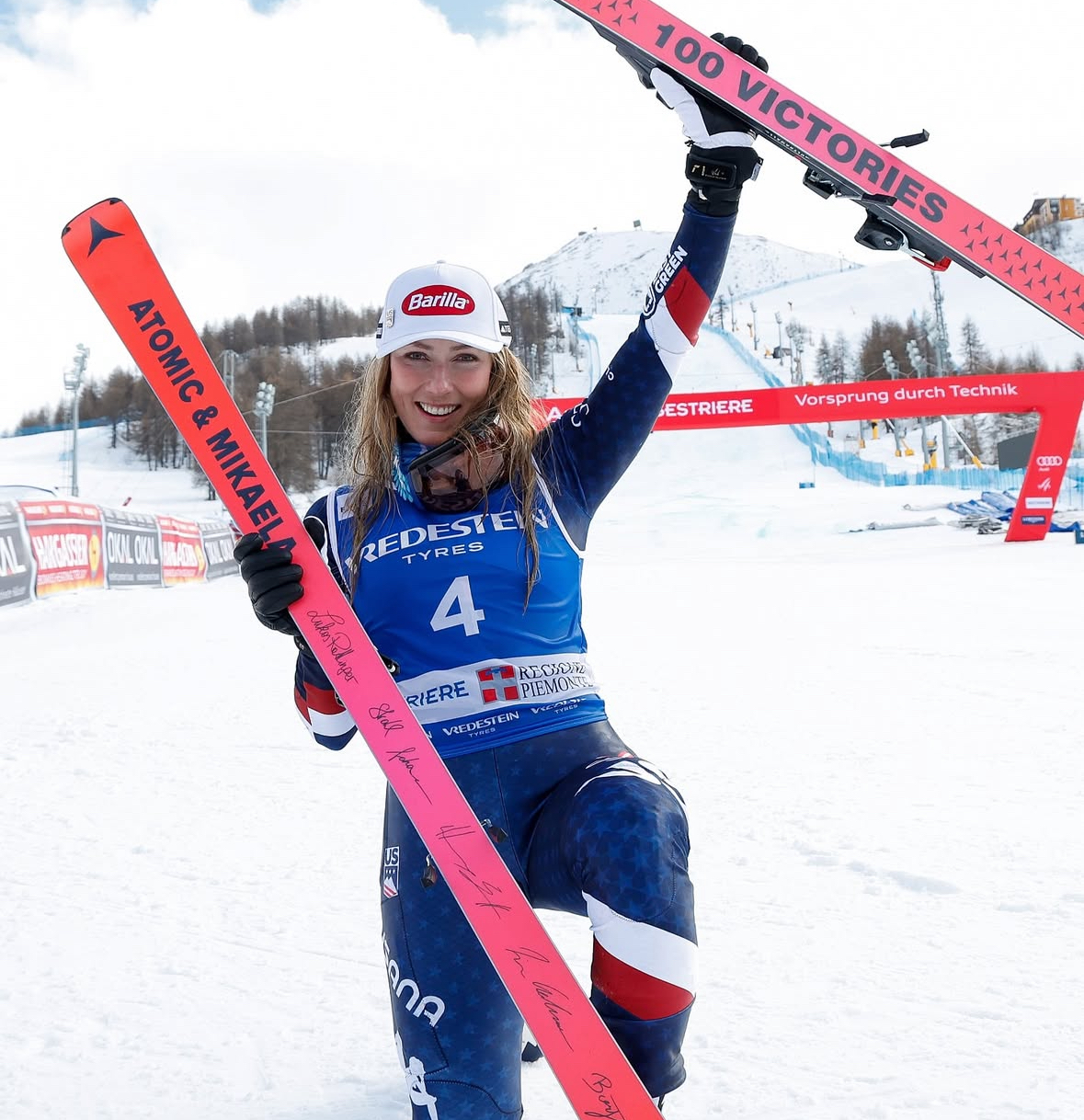
Run 2
A standout performance in Run 2 came from Cornelia Oehlund. The 19-year-old Swede had qualified for the second run in far-off 23rd place but put down such a blistering pace on Run 2 that she ultimately finished fifth. Skier after skier failed to beat her time. Germany’s Emma Aicher came close but settled for sixth, just 0.26 seconds behind Oehlund—her personal best in a Slalom race. The Swedish-German dual citizen typically excels in speed disciplines but has shown increased consistency in her technical events this season, finishing in the top 10 three times (while recording DNFs in other races despite strong first runs). She is currently the only World Cup skier ranked in the top 30 across all four disciplines, following Shiffrin’s decision to forgo Downhill races this season and Michelle Gisin’s absence from Slalom events.
As top skier after top skier failed to best Oehlund’s time—including Truppe, who finished nearly a second behind her—a podium finish started to look possible. Then came Paula Moltzan, who had qualified in fourth. The American delivered an aggressive run, holding a massive 1.68-second advantage from the first section. Some mid-course mistakes cost her about a second, but she still crossed the line with a 0.20-second lead over Oehlund, taking the provisional top spot.
With three skiers left, everything was still up in the air. Third-to-last was Liensberger, who had just a 0.04-second advantage over Moltzan. The Austrian skied a smooth run but ultimately fell 0.12 seconds short, guaranteeing Moltzan a podium finish. Next up was 21-year-old Ljutic, who had a 0.29-second lead over Moltzan. She lost some time at the top but managed to hold onto a narrow 0.03-second advantage, securing at least second place. With this performance, the Croatian also claimed the red leader’s bib in Slalom—regardless of how the final skier, Shiffrin, would perform.
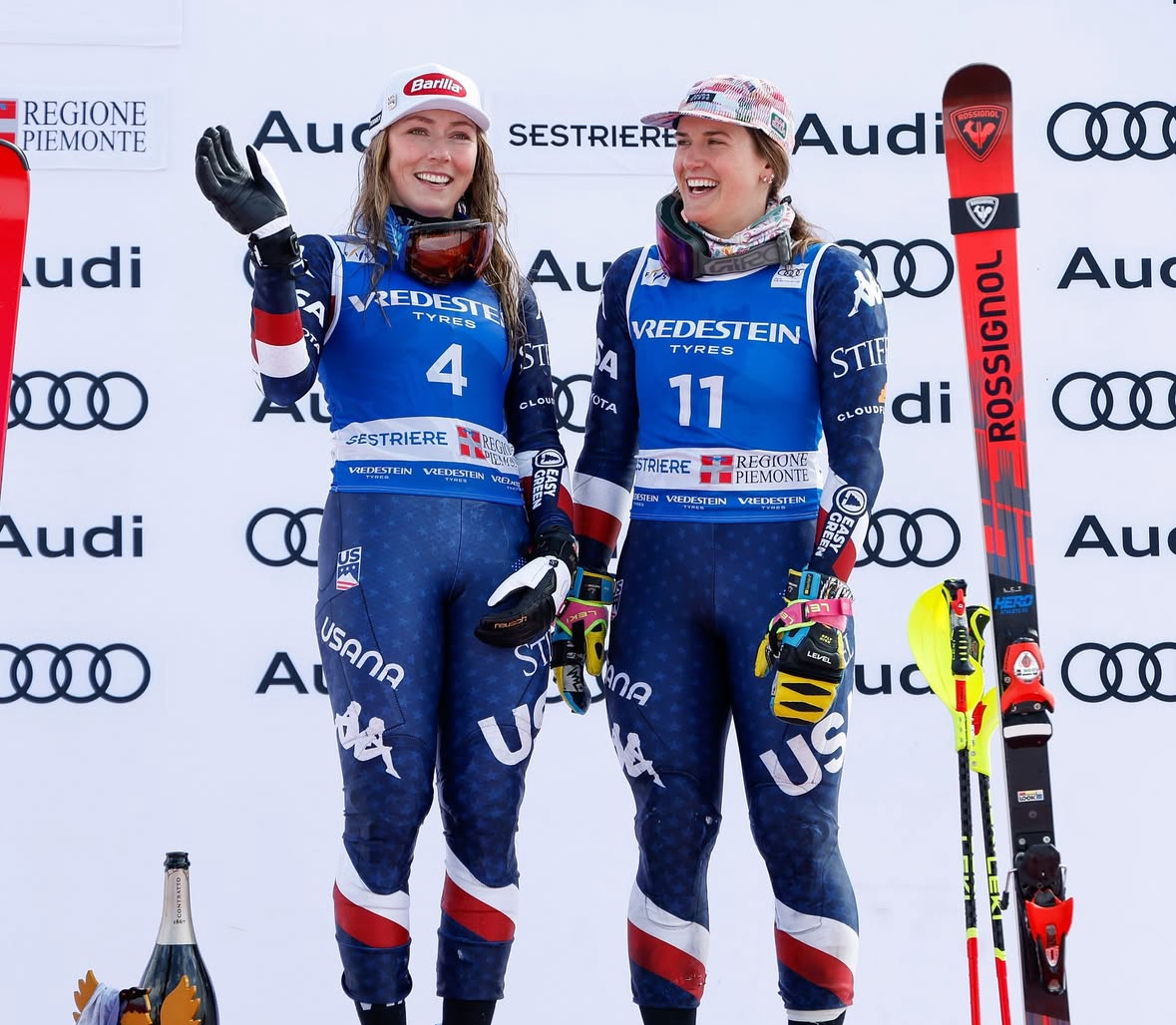
With only Shiffrin left in the start gate and a mere 0.09-second lead from Run 1, the tension was palpable. You could have heard a pin drop in the finish area as she pushed out of the gates. She started strong, extending her lead to 0.29 seconds on the top section. A powerful mid-section run extended it further to 0.47 seconds, and she carried that momentum across the finish line, ultimately winning by a commanding 0.61-second margin over Ljutic.
After a difficult comeback from injury—one that saw Shiffrin fail to qualify for Run 2 in the Giant Slalom just a day prior—she demonstrated just how much of a ski race is determined by a skier’s mindset.
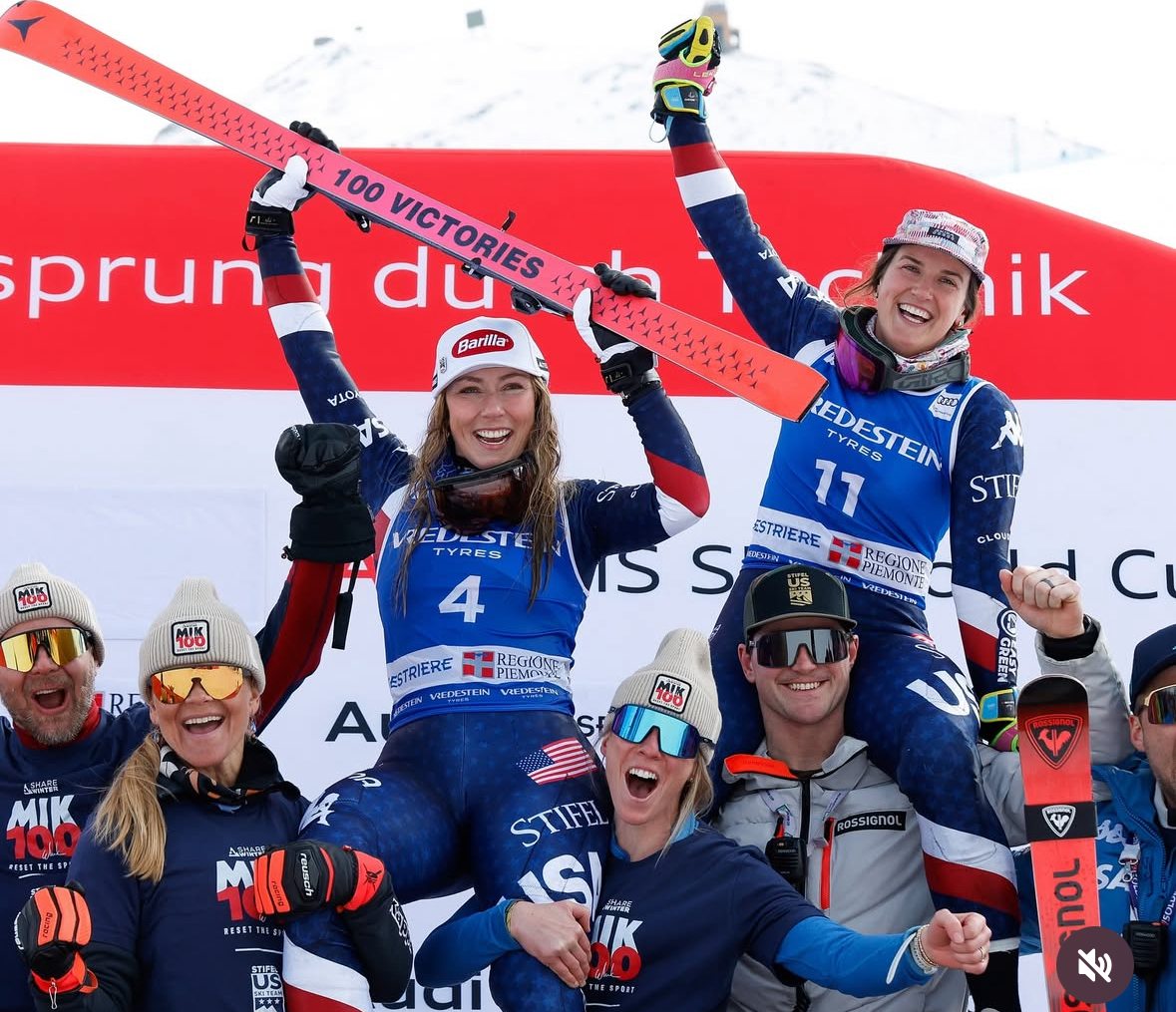
A tearful Shiffrin reflected, “It’s pretty special to share this with Paula, my teammate! I could hear everyone cheering from the start when she went, and I thought, ‘Okay, it’s like a day of training: we just keep pushing, and she pushed, and I pushed,’ and I made it achievable.”
While this marks Shiffrin’s 100th World Cup victory, she has always dismissed the idea of chasing milestone numbers. However, after months of adversity following her Killington injury, the relief and emotion on her face made it clear—today was about far more than the number. It was about proving to herself that she still had what it takes to win under immense pressure.
The FIS Alpine World Cup continues with two Downhill races and a Super-G in in Kvitfjell, Norway from February 28 to March 2, while the tech women have a small break before races continue in Åre, Sweden, on March 8 and 9 with a Giant Slalom and Slalom race.
